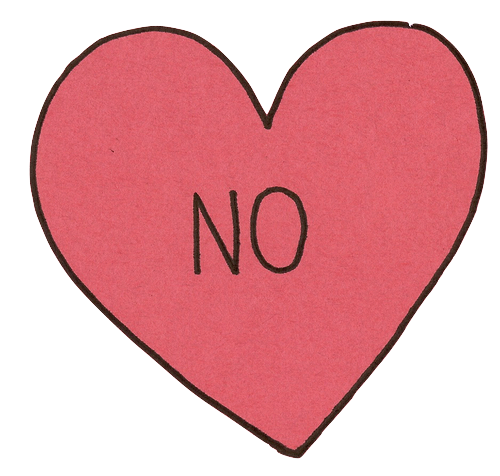Kevin’s voice and hands shook as he told me how he yearned to break up with Sheila, his girlfriend of three years. The trouble was, the thought of leaving terrified him. He was beset by what-ifs: What if he didn’t find anyone else, or anyone better? What if he’d been with Sheila so long, he should just stay? What if he couldn’t make himself hurt her this way?
But the most important question of all was one he didn’t ask—and one we all need to. What if you stay with the wrong person?
Part of dating is hurting others—as painlessly as possible. How painlessly? And how worded? That depends in part on the seriousness of the relationship.
What to say
If you’ve just begun seeing someone, or you are turning down a first date, you can do it over the phone and say:
“Thank you for asking me, but I don’t feel like we’ve got enough in common” or, “Thanks so much, but I’m just not interested.”
And if it’s a more serious, longer-lasting relationship—like Kevin’s–, you can meet in person (unless you feel unsafe), and use this script:
“I’ve really enjoyed _____________ about you. But I don’t think we have enough in common to continue, and I don’t feel the way I’d need to for us to move forward together.”
Repeat either script as often as needed, like a broken record, until the break-up meeting is over.
Why this works
When I conducted a break-up survey that asked people, “What words would you most like [your partner] to use when they break up with you?” men and women of all ages and backgrounds overwhelmingly wanted honesty, but not brutality. Respondents strongly preferred their former date to say something worthy about them, and then to proceed to an honest but kind reason for the break-up. The most-desired reasons reflected the theme of a poor match: “It’s just not going to work out,” “I don’t think we’re right for each other,” “We don’t have enough in common,” and/or “We’re not a good enough match.”
Factually speaking, they’re on the right track for long-term happiness. Dozens of studies show that similarity is the best pathway to the widespread goal of a happy union. So saying, “I don’t think we have enough in common to continue” is not only clear and brief—it’s Truth, a reason deeply rooted in the reality of what makes for a happy permanent relationship. Other studies show that kindness in our actions is a rock-bottom requirement for happiness with anyone. So avoiding character assassination and focusing on our own feelings instead works. And bonus! This method is unassailable: You feel how you feel, period.
Did Kevin break up? You bet. And he told me the pain of worrying about it was far worse than how he felt afterwards; afterwards, he felt free to find a better match.
The price of finding the right one is bypassing every wrong one, including everyone who’s almost-but-not-quite what you need. Nobody ever said, “Thank you for settling for me!” Set yourself—and this other person—free.
Duana C. Welch, Ph.D., is the author of Love Factually: 10 Proven Steps from I Wish to I Do (2015). This is a partial excerpt, copyrighted by the author. You can get a free chapter and read more at http://www.lovefactually.co











